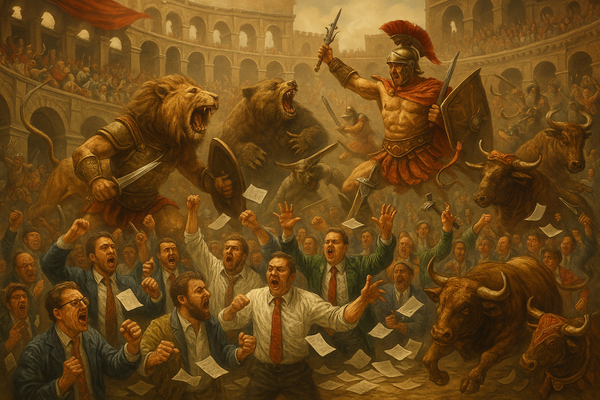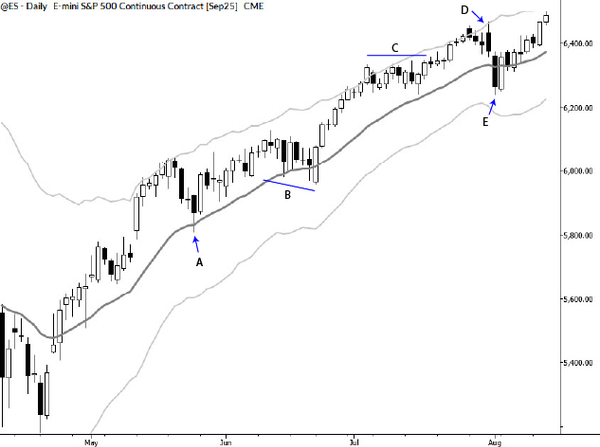How a trader should think about central banks
One of the recurring themes I've heard from traders (both professional and private) over the past decade or so is distrust, anger, and mocking of central banks and central bank action. I won't quote anyone, but some examples:
- Prices can't move randomly because central banks will take prices wherever they want them to go.
- You can't trade successfully in manipulated markets.
- Central bankers depress prices of gold (or whatever) so they can buy at lower prices.
- I didn't really have a losing trade because it was just those f^#%ing bankers who f&#%ed me again like they always f&(*ing do, every f(@%ing time...
- There's no point buying stocks--it's obvious they are going to go up but it's just central bank manipulation.

This kind of thinking is more an expression of fear and distrust of the political system, more than anything else, and this has been a big part of the zeitgeist as long as I've been involved in markets. If you miss a move, you can justify it because it was "fake" anyway (as someone told me the last 100% rally in stocks was fake.) If you have losing trades, they aren't your fault--blame the bankers! Everyone can sit online and pontificate about how dumb the system is, how corrupt the bankers are, and just wait for the coming crash. The only problem with this plan is that it's going to keep you from being successful as a trader and investor.
No matter what and how you trade, one of the cornerstones of any successful investment process is personal responsibility. No matter what happens, it is your fault. You are as responsible for all your losses as all your wins. There are no external factors in the long run, and there's no short run--the outcome of any trade is, and must be, absolutely inconsequential. No point agonizing over what happens in any particular instance, because we care what happens over ten, twenty, and a hundred traders, and, if you're doing the right thing, the percentages work out in the long run. There is no short run.
The second problem here is that a lot of people get caught up in trying to forecast central bank action, and I think this is folly. Even if you can (and you can't) forecast, there is not necessarily any simple connection between policy and market direction. You might very well forecast policy correctly, and miss the market reaction; what you're doing is simply creating another way you can be wrong, and you need to be clear: your goal is to be right on the market, not right on policy and winning arguments in chat rooms! The only way you make money in the long run is if the pile of money you make from your winners is bigger than the pile you make from your losing traders. This is all that matters.
What's the answer to the question at the beginning of this post? You shouldn't. I think, for most individual traders and investors, you shouldn't think about them at all. You should have a working, repeatable process with a verified edge, and you should simply work that process. You should shut out all distraction and, as much as possible, reduce emotional charge and content from your market activities. This where the profits are.
So, as we come into the end of the year, I encourage you to do a deep self inventory and consider what influence your political views, opinions, and fears might have on your investing process. Are you focusing on making winning traders or on discussing policy? Are you thinking over a large sample size, and focusing on the long run? Or do you get distracted by the outcome of any one trade or event? Above all, are you accepting full and complete responsibility for your actions and the results of those actions? Trading is hard, but there are ways to make it so hard it's impossible--focus on the right things, and right results will follow.



